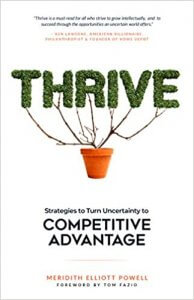3 Ways To Consistently Earn Influence
“People don’t believe what you say; they believe what you show them.”
This is the advice I recently gave Tracey, a client who was frustrated that her team only half-heartedly listened each time she spoke. She said they were always distracted during meetings and conversations, and she couldn’t figure out why she didn’t have enough influence to keep their attention.
That’s when I asked her to be honest and confess if she did the same.
The answer wasn’t surprising.
Tracey confessed to occasionally allowing text messages and emails to distract her during meetings. She said even a few times, she stepped out of meetings to answer phone calls she considered too necessary to ignore.
That’s when she realized her team was exhibiting the same behavior she showed them. showing her.
Like Tracey, we all want to be influential, but rarely do we consistently demonstrate the actions needed to earn it.
People only know what you tell them and what you show them and when those two messages fail to align, your influence suffers.
Influential professionals ensure their message and delivery are consistent Monday to Monday. They know they must show up the same way every day and in every interaction. Here are three ways you can grow your influence by doing the same:
- Ask About Your Inconsistencies.
By the end of this week, ask someone you know and trust to honestly share the inconsistent behaviors they see you demonstrate in and out of the office. Then, write it down.
Maybe you tune out on your devices or are sometimes late to meetings. Maybe, you are slow to respond to emails or are inconsistent in how you do.
Simply becoming aware of your inconsistent tendencies will help you identify the behavioral pattern.
- Avoid the Perfection Trap.
People want the best you, not the perfect you.
When you show up consistently every day, you are perceived as credible and trustworthy. Many leaders think that delivering a perfect presentation in a high-stakes scenario is enough to earn influence, but it’s not.
It comes from the consistent behaviors you demonstrate in the day-to-day conversations that matter most.
Right now, set aside 30 minutes before your day begins. Use this time to prepare for your daily meetings, even those that aren’t high stakes. Consider what you want to discuss and the actions you want taken as a result.
By spending more time preparing for every meeting, your delivery will be consistent, no matter what is at stake.
- Prioritize Actions, Not Words.
All of us know someone that commits to a project or a deadline and rarely follows through. No matter how much we ‘like’ the person, it’s hard to trust them.
Trust is earned by consistent follow through of your commitments.
If you say you will deliver a project by a specific date, do it. If you say being on time is important, don’t be late. If you say you value quick responsiveness, then respond to emails and phone calls in a timely fashion. Your consistent actions, not your words are how others will perceive you to be.
Beginning tomorrow, for every commitment you make someone, send an email to follow up to your verbal commitment.
If during a meeting, you promised to address unanswered questions, send an email to all attendees with the unanswered questions and a date you commit to providing a response.
If you told your team you would host a training meeting or discussion on a topic, email everyone on your progress to deliver.
When you follow up with those to whom you’ve committed, you will become consistent in your follow through and build trust with others.
Earning influence requires work and consistency in every situation, with every person, Monday to Monday. If you find you lack the influence you need, follow these three simple tips to start becoming consistent today.
Stacey's Picks:

If you missed one of Stacey’s previous blogs or tips, visit her online.
Check out our Research on Influence in conjunction with the University of Northern Colorado HERE.



